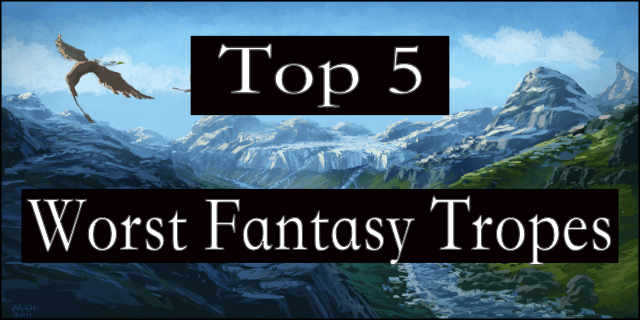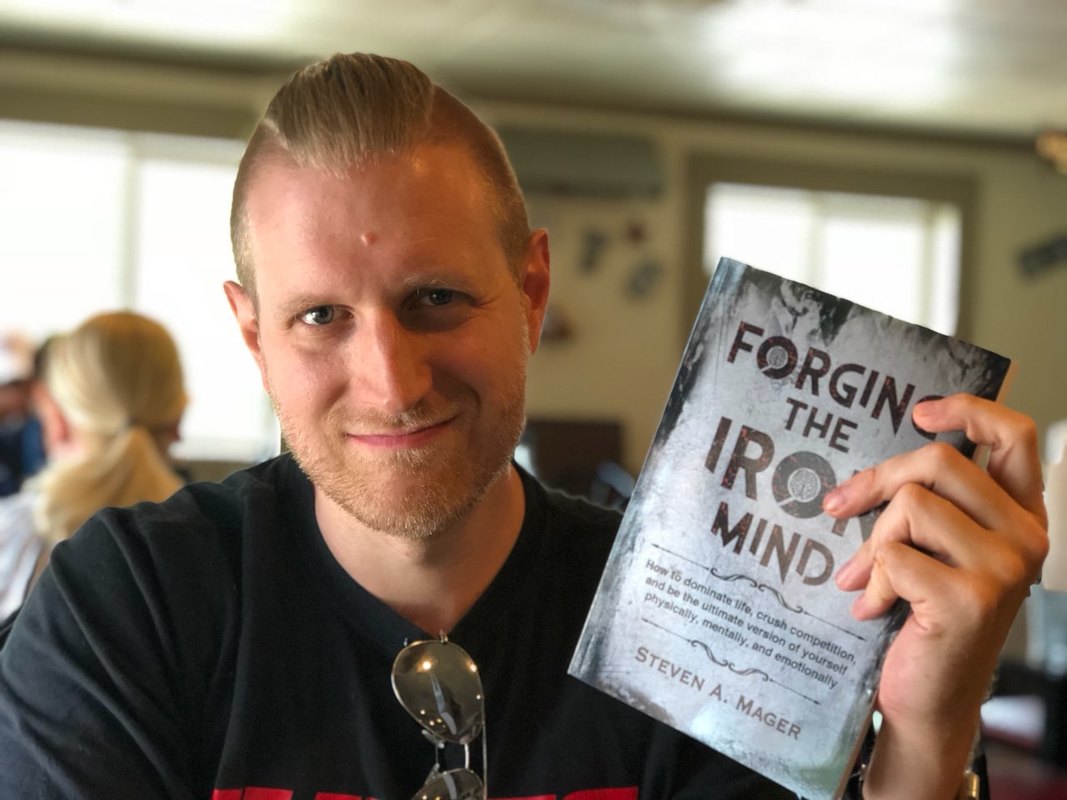|
Fantasy has been my favorite genre for as far back as I can remember. Be it movies, TV, or books, I’ve always been fascinated by alternate universes featuring fantastical creatures and people, elaborate magic spells and artifacts, and epic quests. Growing up, Tolkien, Piers Anthony, and Terry Brooks were a few of my favorites, leading to present day masters such as Sanderson, Rowling, and Rothfuss. Characters such as Conan, King Arthur, Legolas, and many others shaped my perception of the fantasy genre, eventually leading to a desire to write one of my own. When I set out to write The Witchbreaker Saga, I made a list of things that enable immersive fantasy and also a list of things I wanted to avoid within the genre. Eventually I’ll write a post about the tropes I like, but for now, let’s settle in and look at the tropes I try to avoid that shaped my work. Let me preface this by saying it is possible to still use these tropes and get away with it, as long as your characters are interesting, your world complex, and the conflict realistic.
5. The oddly specific magical item that saves the world or completes a quest. Our heroes have encountered a problem. Perhaps it’s a curse, plague, sickness, or a villain with a specific power. What’s a writer to do? Why, invent a magical item or god that just happens to possess the exact effect needed to counter that problem. Serialized fantasy TV such as Legend of the Seeker, Xena, and Hercules are most responsible for this one, yet it is still seen in books as well. This trope becomes even worse when this object is encountered later in the book as a Deus Ex Machina, only existing to solve the heroes dilemma without sufficient foreshadowing. Once could argue that Lord of the Rings possess multiples of these such as the eagles, yet, Tolkien’s skill allows us to overlook them. Most of us aren’t anywhere in the same galaxy with Tolkien, so we must ensure we aren’t inventing oddly specific items to solve problems out of thin air. Out of the multitude of examples, my least favorite has to be time manipulation, such as the Time Turner in Harry Potter, which could have been used to solve any number of problems, yet only cropped up once to save Buckbeak and Sirius Black, and for Hermione to take more classes. 4. Stereotypical Races It still surprises me how so many writers still rely on the classic Tolkien-esque races. Be it the savage but honorable orc, or the wise, beautiful, and immortal elves, virtually every fantasy story still relies heavily on these stereotypes. Warhammer, Magic the Gathering, Warcraft, and many others still use these classic racial stereotypes, rarely injecting anything new or original into the formula. 3. The One Dimensional Villain I love Harry Potter. I even own a Sorting Hat, and have read each book and watched each movie multiple times over. Yet, Voldemort has to be one of the worst villains ever conceived. Despite the world of Harry Potter possessing some of the best world building of all time, somehow Voldemort ends up as one of the worst one note villains in popular fiction. Generically evil villains have to be one of my least favorite tropes in any media, because in real life, every villain believes they are the in the right, and can usually list off a litany of reasons. Even the worst of the worst, such as Hitler, Stalin, and Mao, could easily articulate why what they were doing was correct in their mind. Let me give an example of one of the greatest villains ever created: Magneto, from the X-men. Unlike many of these villains, Magneto has actual, believable, and sympathetic reasons why he does the horrific things he does. As a Holocaust survivor, he saw what happened when a certain class or race of people were targeted, and he is determined not to allow that to happen again. So even though he is committing horrendous acts, we can at least understand why, and on some level, empathize. Thanos is another. His Malthusian philosophy is actually a real philosophical belief, and in his mind, he is the only one with the will to ensure the long term survival of the universe. 2. Idiotic Decision Making This rakes on my last nerve. If there’s one thing I can’t stand in fiction, it’s the hero making absurd decisions and justifications to advance the plot. Not confined only to the realm of fantasy, this one is everywhere, but most prevalent in horror. This usually ties into themes related to a trope known as Joker Immunity, where the hero utterly refuses to kill the villain, no matter how much havoc they’ve created, i.e. Batman refusing to kill the Joker, thus enabling the Joker to kill hundreds or thousands more. This is particularly idiotic since no such a thing exists in real life. No one would bat an eye at executing Hitler on the spot, yet Batman is perfectly willing to keep the Joker alive no matter how many dozens of times he’s broken out of Arkham Asylum and murdered thousands. At a minimum, if the villain has perpetrated sufficiently evil acts, the hero should at least attempt to kill them. Now, if the villain escapes because of their own cunning or skill, that is a turn I can live with. 1. The Chosen One and The Prophecy The alpha and omega of overused tropes. The stable boy that finds out he’s the only one that can save the kingdom, and he’s actually a secret prince. The maid that wakes up one day infused with some magical ability prophesied to save the world. Listen, I’m all for a hero’s journey. It’s a classic storytelling arc that still works to this day if executed properly. However, the Chosen One irks my last nerve. When it just so happens that this completely unremarkable person is destined to save the world, it drives me bananas. I realize this plays on the psychological need for us to feel special, that we wish we could wake up one day and be granted supernatural powers leading us to greatness and fame. Many people live unremarkable lives, so this sort of wish fulfillment psychology will always work on some level. The worst part of this trope is that many times it grants what’s known as Plot Armor, which is a term given when you absolutely know the hero isn’t going to die. This is a big reason Game of Thrones got so popular, is that the perception of characters having plot armor was shattered multiple times over. The other element of this trope I hate, is that it sometimes demonizes talent and hard work. Yeah, I know you worked your entire life and prepared diligently, but this lazy doofus over here was born to save the kingdom, so hey, sorry about your luck. What’s your least favorite fantasy trope? Hit me up on social media and let me know! Steve Mager If you enjoyed this article, please share it and follow me on social media: Facebook: www.facebook.com/StevenAMager Twitter: https://twitter.com/StevenAMager Instagram: https://www.instagram.com/steve_mager/ Get my book, Forging the Iron Mind: [https://amzn.to/2uxRvCs]
0 Comments
Leave a Reply. |
AuthorSteve's blog where he talks about anything and everything: writing, fitness, mindset, movies, TV, and his favorite stuff. Archives
November 2019
Categories
All
|
Copyright © 2015




 RSS Feed
RSS Feed